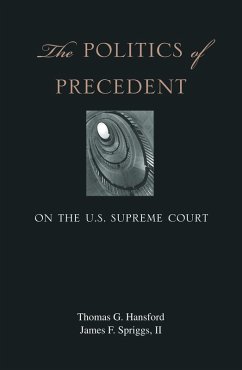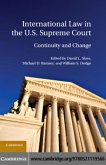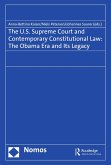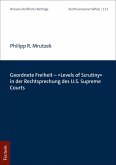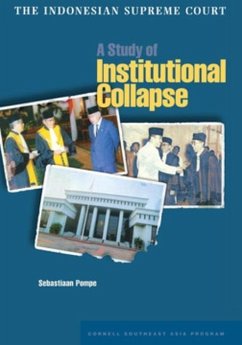The Politics of Precedent on the U.S. Supreme Court offers an insightful and provocative analysis of the Supreme Court's most important task--shaping the law. Thomas Hansford and James Spriggs analyze a key aspect of legal change: the Court's interpretation or treatment of the precedents it has set in the past. Court decisions do not just resolve immediate disputes; they also set broader precedent. The meaning and scope of a precedent, however, can change significantly as the Court revisits it in future cases. The authors contend that these interpretations are driven by an interaction between policy goals and variations in the legal authoritativeness of precedent. From this premise, they build an explanation of the legal interpretation of precedent that yields novel predictions about the nature and timing of legal change.
Hansford and Spriggs test their hypotheses by examining how the Court has interpreted the precedents it set between 1946 and 1999. This analysis provides compelling support for their argument, and demonstrates that the justices' ideological goals and the role of precedent are inextricably linked. The two prevailing, yet contradictory, views of precedent--that it acts either solely as a constraint, or as a "cloak" that never actually influences the Court--are incorrect. This book shows that while precedent can operate as a constraint on the justices' decisions, it also represents an opportunity to foster preferred societal outcomes.
Hansford and Spriggs test their hypotheses by examining how the Court has interpreted the precedents it set between 1946 and 1999. This analysis provides compelling support for their argument, and demonstrates that the justices' ideological goals and the role of precedent are inextricably linked. The two prevailing, yet contradictory, views of precedent--that it acts either solely as a constraint, or as a "cloak" that never actually influences the Court--are incorrect. This book shows that while precedent can operate as a constraint on the justices' decisions, it also represents an opportunity to foster preferred societal outcomes.
Dieser Download kann aus rechtlichen Gründen nur mit Rechnungsadresse in A, D ausgeliefert werden.

